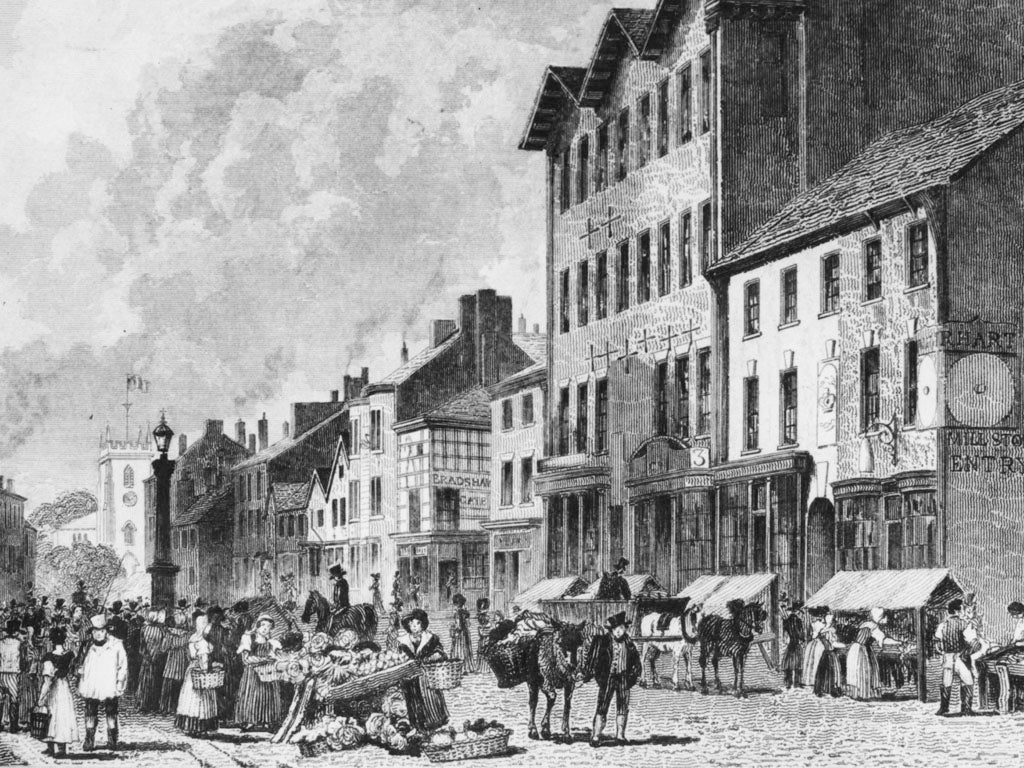If you want social mobility, don’t blame everything on the past
Blaming someone else for your fate is disempowering and useless

Your support helps us to tell the story
From reproductive rights to climate change to Big Tech, The Independent is on the ground when the story is developing. Whether it's investigating the financials of Elon Musk's pro-Trump PAC or producing our latest documentary, 'The A Word', which shines a light on the American women fighting for reproductive rights, we know how important it is to parse out the facts from the messaging.
At such a critical moment in US history, we need reporters on the ground. Your donation allows us to keep sending journalists to speak to both sides of the story.
The Independent is trusted by Americans across the entire political spectrum. And unlike many other quality news outlets, we choose not to lock Americans out of our reporting and analysis with paywalls. We believe quality journalism should be available to everyone, paid for by those who can afford it.
Your support makes all the difference.Got a chip on your shoulder about your upbringing and its negative effect on your current circumstances? Well, get ready to turn that chip into a whole bag of potato snacks. If a new book is to be believed, now you’ve got even more reason to feel annoyed and disempowered.
The Son Also Rises (see what he did there?) is a new book by Gregory Clark which states that our chances of success in life depend on what our family were doing 300 years ago. If you’re not doing so well these days, blame your great, great, great, great, great, great grandfather. If he was a shopkeeper, you’re likely to be a shopkeeper. If he was struggling, you’re likely to be struggling. And if you spend your time dreaming up spurious theses and getting paid actual money for them, chances are your ancestor was doing exactly the same thing.
Oh come on, Greg. I’ve never read such a load of rubbish in my life. My great, great, great, great, great, great grandfather was probably impoverished, illiterate and busy escaping a pogrom or inquisition of some sort. That’s not my situation, thank goodness. Granted I am lucky to live in a free society and not Saudi Arabia, where I really would be in trouble, but I do read and write for a living. Even if my ancestor had impeded my progress, what’s the point in thinking that? Blaming someone else who’s alive for your fate is disempowering and useless enough; there’s even less recompense from the long dead.
If we want to look at social mobility we need to work with what we’ve got now rather than looking back into the ancient past. And what we’ve got now are contributing factors that are bigger than any one individual. Too much of a divide between the independent and state sectors, not enough on-the-job training schemes for all ages (not just school-leavers), ridiculously high property prices, unaffordable childcare and too many people getting into debt doing higher-education courses that just won’t help them to get a job. With a lot of work and a change in thinking, we can fix these issues. It’s a little bit harder to resurrect our dearly departed loved ones and get them to sort out our lives.
Social mobility is a serious issue. Let’s take it seriously instead of pandering to mad academic theories.
Louise Scodie is a presenter for London Live
Join our commenting forum
Join thought-provoking conversations, follow other Independent readers and see their replies
Comments